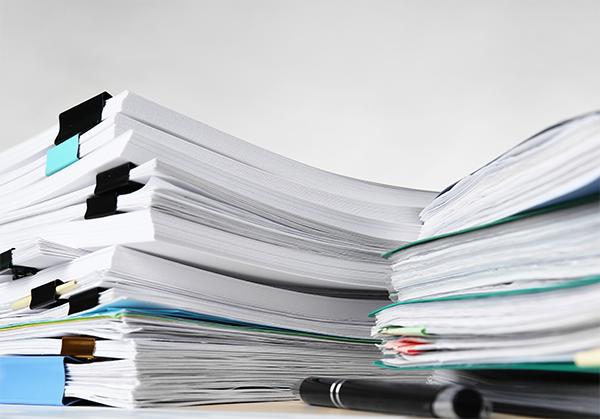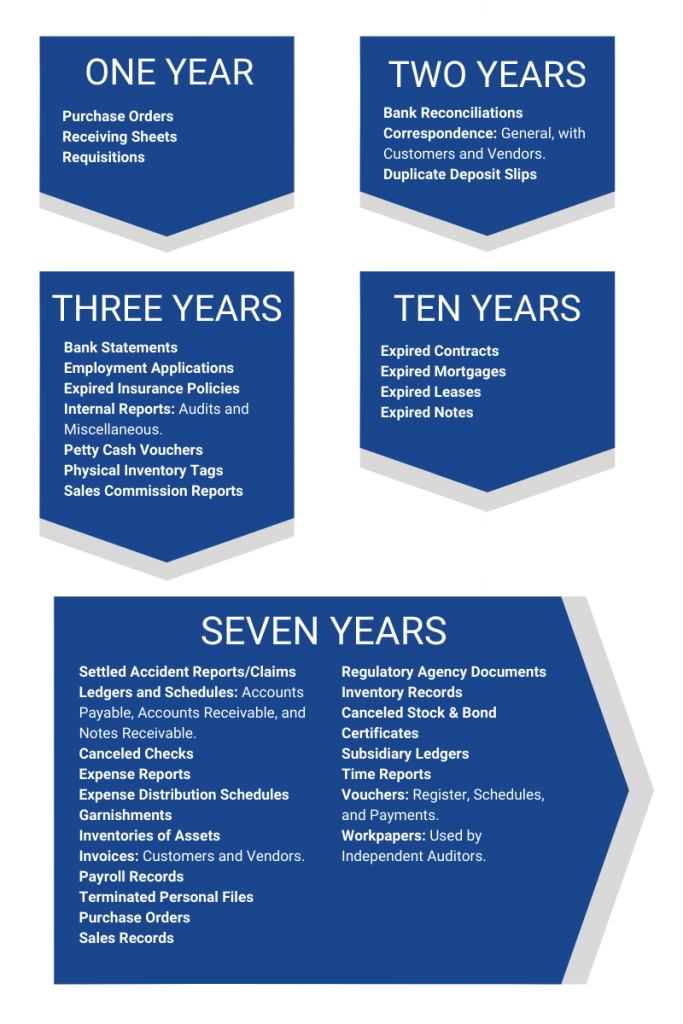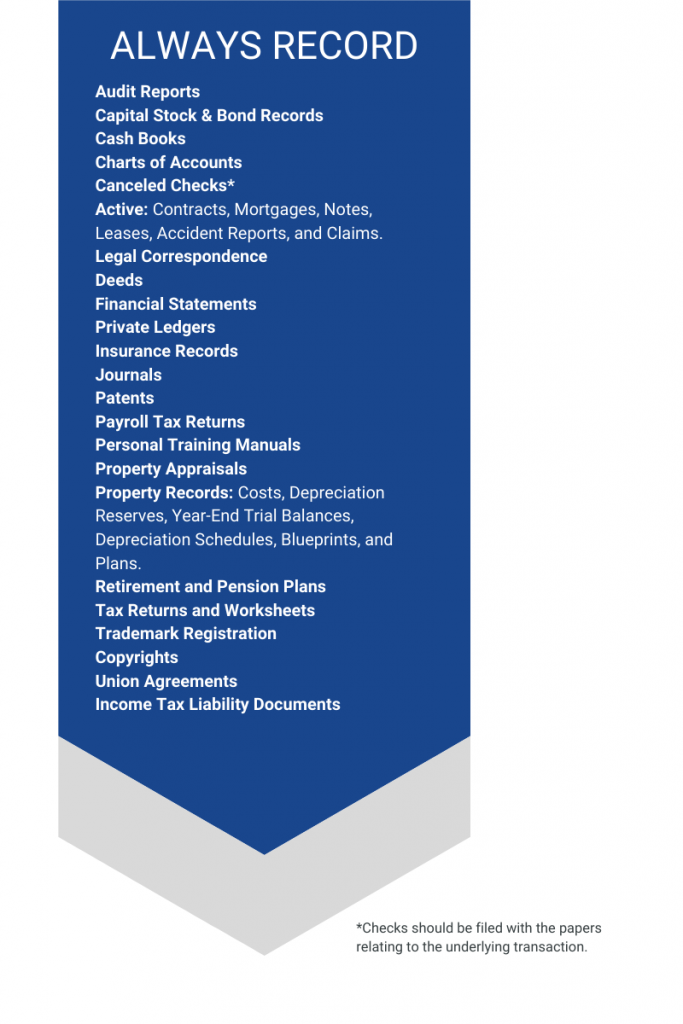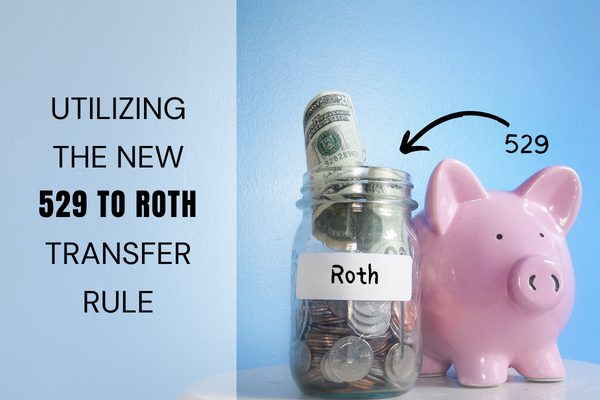How to Keep Records Minus The Clutter

Leading Economic Indicators
October 12, 2020
Market Perspectives November 2020
November 12, 2020
Ever wonder if you need to save your recent restaurant receipt? Or old lease contract? While you may be surrounded by important documents, it’s not necessary to be overwhelmed by an ever-growing mound of records. A records retention schedule helps you identify documents that should be kept and suggests how long you should keep them. The following are questions to consider: What do you want to retain? How long do you need the record? Can you save these digitally? What record formats are allowed and may change in the future? Click here to see the list of the most current record formats from the National Archives.
Here is a helpful Record Retention Guide, documents suggested by DHG: Dixon Hughes Goodman, LLP, for general record keeping as it relates to both personal and business documents.
- Infographic created by Carolinas Investment Consulting.
- Infographic created by Carolinas Investment Consulting.
Mary Alex is a Marketing and Communications Coordinator at Carolinas Investment Consulting.
Carolinas Investment Consulting is not affiliated with any of the websites linked in this commentary. Nothing contained herein constitutes financial, legal, tax, or other advice. The views and opinions expressed in this article are those of the author and do not necessarily reflect the official policy or position of Carolinas Investment Consulting. The information published herein is provided for informational purposes only, and does not constitute an offer, solicitation or recommendation to sell or an offer to buy securities, investment products or investment advisory services. All information, views, opinions and estimates are subject to change or correction without notice. The appropriateness of an investment or strategy will depend on an investor’s circumstances and objectives. These opinions may not fit to your financial status, risk and return preferences. Past performance is not indicative of future returns.
Source: DHG: Dixon Hughes Goodman, LLP. Click here to see their document list.





